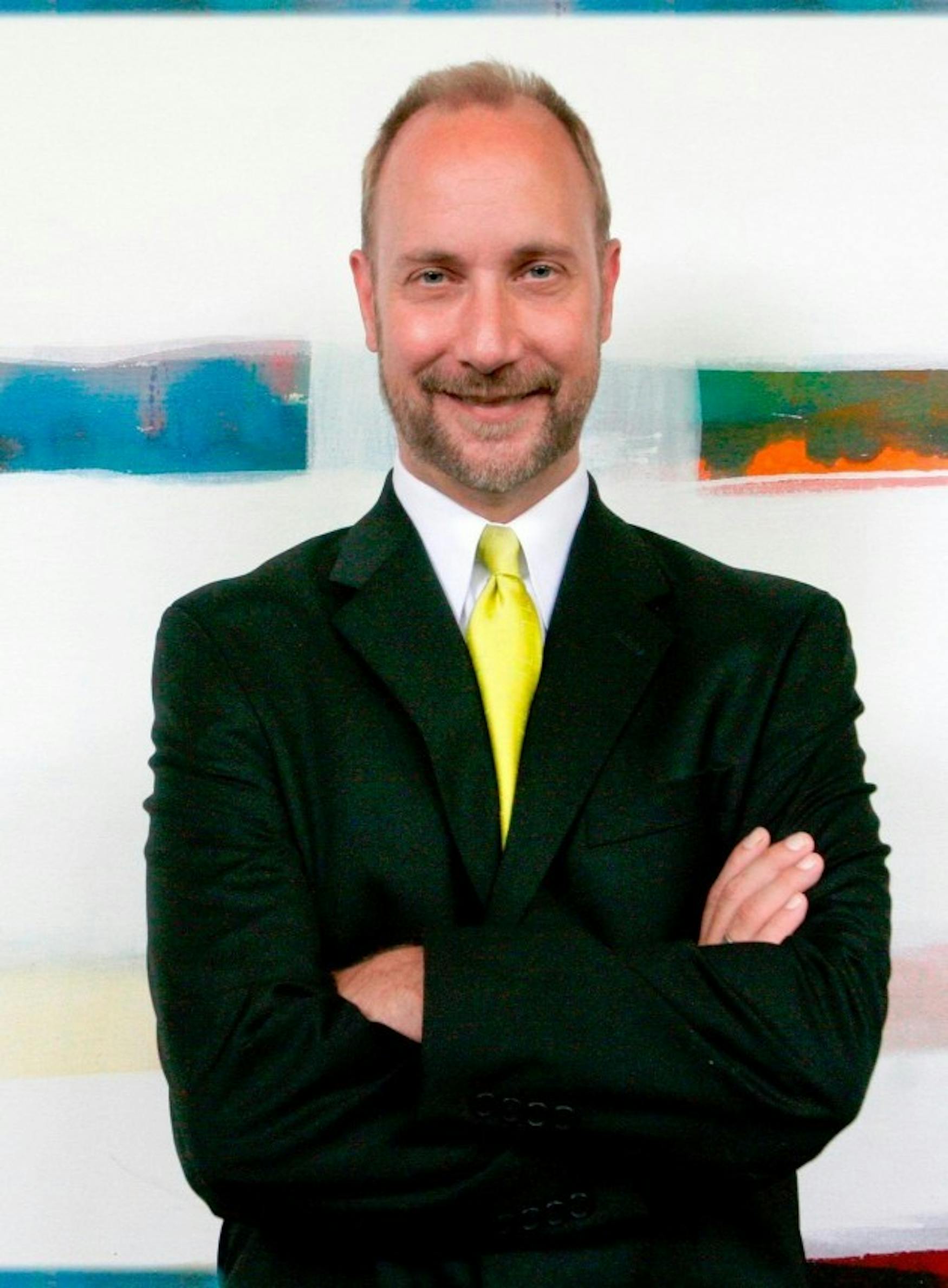Flipping the spotlight
Scott Edmiston brings his theater experience to the Boston stage
He calls it intuition. Many others would call it raw talent. Either way you put it, Scott Edmiston has what it takes.
As the recipient of numerous Elliot Norton Awards for the theater arts, Edmiston has been directing plays in Boston since he moved here nearly 16 years ago. He is also the founder of Brandeis' own Office of the Arts, helping to unite the community of artists and art lovers alike around campus.
Currently, Edmiston is dedicating himself to directing a piece called Other Desert Cities, which is put on by one of Boston's premier theaters, the SpeakEasy Stage Company. The play opened on Jan. 11 and will continue through Feb. 9, with a special opportunity this Thursday, Jan. 31, for Brandeis students to attend with discounted tickets.
The production features a novelist, Brooke, who is writing a memoir that dredges up the tragic episode in her family's history of her late brother's suicide. An anti-war activist torn between her Republican parents and her own political ideals, Brooke in part blames her parents' politics for her brother's suicide. This confession becomes apparent in her newly written memoir, much to the dismay of the rest of the family.
Edmiston explains that the brother's suicide acts as a "metaphor for the trauma America went through between the Vietnam War and Watergate, two events that ultimately splintered the American family... and led us to the red states and to the blue states." As Edmiston describes it, "it's a political play, but the politics of it are embedded into the life of this one particular family."
What Edmiston enjoys most about this production is that ultimately it's a play for the characters, allowing him to showcase the skills of his "extraordinarily talented" cast. "This play is really about five people in a room in their home struggling with their relationships, the complexity of the relationships, their identities, what they want, how much they love each other, how much they hate each other," Edmiston says. "It's really an actor's play, without the distraction of multiple scenery and costume changes that many other productions have," he explains.
Initially an aspiring actor, Edmiston soon realized his talents were better suited to directing. He credits his success to his "visual sensitivity," and his tendency to compare producing plays to the creation of paintings. "I'm a kind of painterly director. The special relationships, the use of color and the visual dynamics are really important to me," he explains. Also, he says, "I really love the way plays are structured. ...Directing combines my love of literature, my love of visual arts, and my love of theater."
Since he's been in Boston, Edmiston has directed around 60 plays, musicals and operas. He says each production has always been a "transformational experience."
"You come out the other side and you're a little different from taking that journey," he says. "Each one of them offered me something. It might have been a person, or an emotion or a life lesson."
In addition to directing, his Office of the Arts job situates Edmiston deep within the campus arts scene. He likens the Brandeis campus to a Georges Seurat painting, an artist known for his work in pointillism, a method consisting of innumerable tiny dots of color combined to create a cohesive work of art.
Before the Office of the Arts, "everyone was just seeing their own little dot of color, and my office kind of steps back and tries to say, look at this gorgeous masterpiece you're creating," he says.
Under Edmiston, the arts community strives to become a united force. With all of the University's art departments, including Creative Arts, Theater Arts and Fine Arts, the Rose Art Museum and multiple clubs, it's important to have a cohesive mission and extensive communication between each branch.
The Office of the Arts also works to increase participation in the arts and "nurture the creativity of the student population here at Brandeis," explains Edmiston. "We know not everybody is going to be a professional artist, but we do hope that the arts will be a part of their whole lives. We help broaden and deepen those experiences and the capacity in our students to find meaning and pleasure in the arts," he says.
Edmiston himself is a role model for this kind of participation and appreciation of art. In everything he does, be it administrating, teaching or directing, Edmiston offers a creative approach, allowing "Brandeis as a whole to think outside the box," he says.
As for future artists, Edmiston warns against the "misconceptions and mythology about a life in art." He says being an artist is not as hard as some would like to make it seem. Instead, he says, it is about setting aside the "perceptual obstacles that might get in the way of just loving art and doing it." No matter the medium, art is not something to be discouraged or condemned, and for Edmiston, the opportunity to direct plays like Other Desert Cities has enriched not only his life, but the life of those who are able to appreciate his work.
"I think it should be a joy," he says, "I think it should just be pure joy."



Please note All comments are eligible for publication in The Justice.